#greek plays
Text
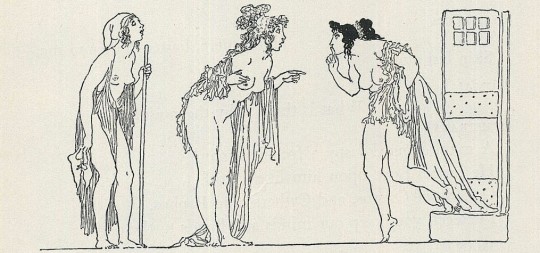
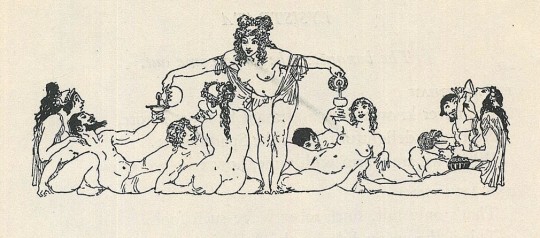
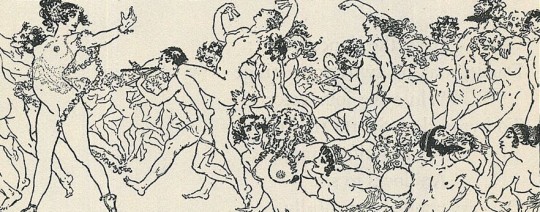
Illustrations from Aristophanes' Lysistrata by Norman Lindsay (1930)
#norman lindsay#art#illustration#golden age of illustration#1930s#1930s art#vintage art#vintage illustration#vintage#australian artist#australian art#plays#greek plays#ancient greece#aristophanes#lysistrata#classic art
15K notes
·
View notes
Text
awestruck over the family curses shared between elektra/Orestes and Hamlet. the house of atreus is falling. there is something rotten in the state of Denmark. I hate my mother. (I remember the way she looked when she held me as a child) I remember loving her (somehow I still do) I want her dead (I am afraid to do it) I am divinely appointed (the gods have deserted me) my father is gone (this house is full of ghosts) he would want me to avenge him (he would hate the path I’ve chosen) I’m the game (I’m the pawn) I’m an prophecy (I’m destruction) I’ll change the world (I don’t want to be in it) I am the bringer of light (I am drowning in darkness) let me out (the trap is of my own making).
#orestes#elecktra#electra#hamlet#classics tumblr#greek tumblr#greek plays#greek tragedy#anne carson#the orestia#shakespeare
124 notes
·
View notes
Text
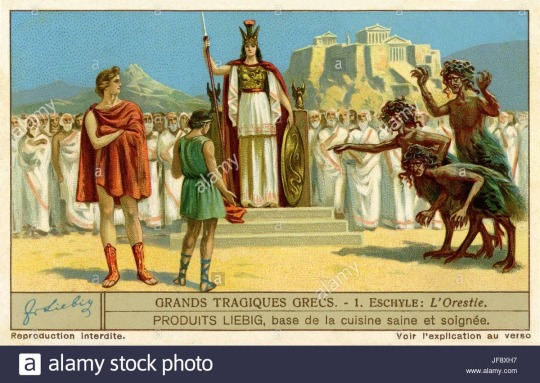
I really like the idea that when gods walk among mortals they’re still significantly taller than them, not cartoonishly large like that awful Gods of Egypt movie, but in the taller than average basketball player kinda way.
#greek mythology#greek pantheon#ancient greek mythology#greek goddess#athena goddess of wisdom#athena goddess#athena#apollo greek mythology#apollo god#apollo#orestes#the orestia#greek plays#greek goddesses#greek myths#hera goddess#greek myth#greek tragedy#greek gods
65 notes
·
View notes
Text
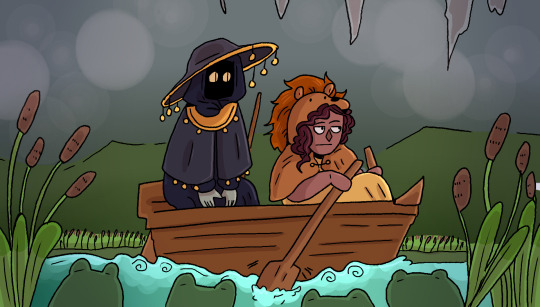
Frogs by Aristophanes
#artists on tumblr#art#original art#illustration#greek gods#greek mythos#Aristophanes#greek plays#frogs#frogs play#dionysus#charon
63 notes
·
View notes
Text
The poems of long-ago bards shall no more portray us as fickle, untrustworthy friends - bias because lord Apollo forbore to implant his lyrics in feminine minds.
Otherwise we could have answered with songs, back to the masculine sex, that long years can easily open up tales of men's wrongs, no less than their narratives all about ours
- Medea, Euripides (431 BCE)
30 notes
·
View notes
Text

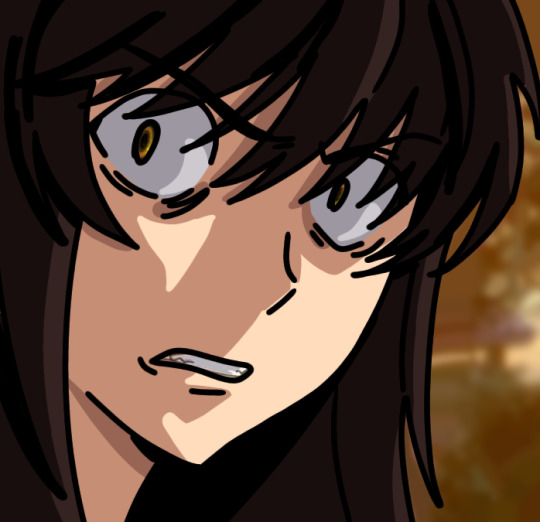
Yandere Medea...
Save me Yandere Medea...
Yandere Medea save me...
#greek mythology#jason and the argonauts#argonautica#medea#medea play#euripides#euripedes#greek myths#greek myth#greek tragedy#greek play#greek plays#greek mythos#mythos#mythology#greek mythology art#ancient greek mythology#my art#digital art#not really proud of the first one but you get my vision
24 notes
·
View notes
Text
Strangers on a train but it’s Hamlet and Electra. 2478 injured, 1583 dead including themselves
#hamlet#Shakespeare#electra#oedipus#oedipus rex#agamemnon#Sophocles#strangers on a train#patricia highsmith#books#reading#plays#greek plays#intertextuality#tragedy#tragedies#greek mythology
38 notes
·
View notes
Text
Oh my god??
ANTILOCHUS takes the cloak from the floor. Handling it with reverence, he spreads it in front of ACHILLES on the ground. It is the body of Patroclus. ACHILLES stands. ACHILLES: (a great, broken wail – the word hardly recognizable) NO!!!
Antilochus, lament for me, alive, rather than for him, dead. For I have lost everything!
After a moment, the action ‘stops’. In a wholly focused, sober (but not sombre) way, the actors return to earlier positions. ANTILOCHUS returns the cloak to its previous place.
[…]
ACHILLES himself takes the cloak from the floor (it is the armour he has given to Patroclus, now become Patroclus’ body). Handling it with reverence, he spreads it on the ground where ANTILOCHUS had put it.
ACHILLES: (a great, broken wail – the word hardly recognizable) YES!!!
(A sudden cacophony of battle, brief, abstract and deadly.)
Antilochus, lament for me, alive, rather than for him, dead. For I have lost everything!
The lamentation. The lines enclosed in [ ] should be almost sung, as close to song as possible without this seeming forced – Sprechstimme perhaps with some mixing/echoing of voices. The section should be repeated once to enhance this effect.
[ACHILLES: (To Patroclus) Ungrateful for my lavished kisses! Your own pure perfect limbs you took for granted!
MYRMIDON: Mindless, took no regard
ACHILLES: For the refined companionship of your legs and arms.
MYRMIDON: Bloodied! Torn!
MYRMIDON: Disfigured friend.
ACHILLES: Yet not, because I love him, to me repulsive.]
ACHILLES takes up the cloak, holds it in front of him (no longer a body, but his armour)
ACHILLES: The old Libyan tale, what it says is here. The eagle, shot by an arrow, saw its feathered shaft and said: “So – it is not another that is my undoing, but my own wing.”
(Pause. He puts on the cloak.))
Weapons! Bring me weapons! My weapons! I need weapons! WEAPONS!! (An almost inarticulate scream as ACHILLES exits) WEAPONS!!!
-Myrmidons, Aeschylus
#finished it and omg#patroclus#patroklos#achilles#patrochilles#tagamemnon#greek plays#aeschylus#myrmidons
16 notes
·
View notes
Text
PYLADES: I’ll take care of you.
ORESTES: It’s rotten work.
PYLADES: Not to me. Not if it’s you.
- Euripides, ‘Orestes’
#literature#poem#poetry#classic literature#books#quotes#english literature#spilled thoughts#web weaving#words#greek literature#greek plays#euripides#greece#ancient greek#orestes#lgbtq quotes#tragedy#mlm
34 notes
·
View notes
Text
What happened with Philoctetes being abandoned was used as a plot device for his character and future events and that's why I never use it to judge Odysseus's character. There, I said it.
The reason I say this? Is because back then the greeks came to an agreement that Philoctetes was left on the island of Lemnos after getting a snake bite, and that Odysseus convinced them to leave him behind.
However, despite all the research, I can never find exactly why Odysseus decided to leave him behind. Some imply that he didn't like all the cries from Philoctetes festering wound and left him behind, in others it's implied that he was forced to leave him behind by the others, others imply that it was a plan in order to find a way to get him back eventually, others imply that Odysseus saw him as a lost cause, that he would weigh them down, etc.. It seems like no one could agree on one thing or a reason why, just that it happened and that was basically it. They weren't really focused on giving Odysseus an in depth reasoning, just that he decided to leave Lemnos behind and that story would be a suprise tool that would help them later.
We may never know Odysseus's true thought process or reasonings as to why, as it is all left to be implied and seeing as there are many versions of Odysseus throughout both greek and modern history combined with the fact that there wasn't a universally agreed upon reasoning for it, I never use it to judge Odysseus's character as it feels impossible to do so.
For me personally, if I had to take an educated guess on his thought process seeing as we don't really know what it was, Odysseus doesn't seem like the kind of guy to just go- "hah, rotting foot? Must be a skill issue lmao" before then just dipping but I don't think he would just blindly be like "Nuuuh my friendo, my bestie has an ouchy we can't leave him behind like this!" Either. Odysseus's is a very complicated man, but was neither saint nor monster either, rather being the inbetween, and that was shown a lot in stories. So I wholeheartedly feel like it probably was the same situation with what happened with the other situations like Iphigenia, Troilus, Polyxena, etc.. where the man either offhandely makes the suggestion or does the hard decisions himself for reasons either known or unknown.
That's atleast my thoughts on it, I know everyone has there own thoughts on it as well ^^ and I could be wrong but please don't beat me over the head if I am ^^", that's just what I think about it all
#seriously though poor philoctetes had to deal with that awful snake bite for years#bro is stronger than all of us combined#and that's just a fact#odysseus#the odyssey#homer's odyssey#the iliad#homer's iliad#ancient greek mythology#greek mythology#ancient greek#greek myth#greek plays#sophocles#philoctetes#iphigenia#polyxena#troilus#greek heroes#ancient greek gods#greek gods#greek stories#greek stuff#greek posts#lemnos#epic the musical#epic: the musical#epic the troy saga#epic: the troy saga#epic saga
47 notes
·
View notes
Text
r.i.p. agnes montague you would have loved iphigenia of mycenae
#agnes montague#iphigenia#iphigenia of mycenae#the magnus archives#magnus pod#tma#tma s2#tma podcast#tma memes#greek plays#euripides#greek mythology#iphigenia in aulis#tma ♡⸜(˃ ᵕ ˂ )⸝#other assorted interests ִ࣪𖤐
17 notes
·
View notes
Text
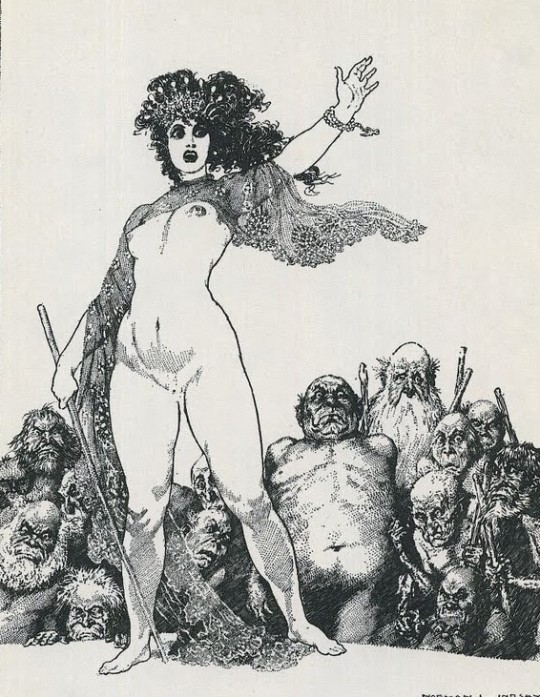
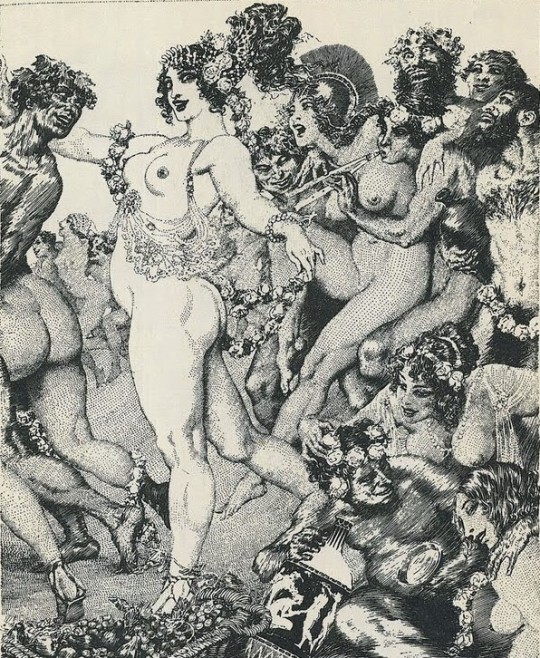
Illustrations form Lysistrata by Norman Lindsay (1930)
#norman lindsay#art#illustration#golden age of illustration#1930s#1930s art#vintage art#vintage illustration#vintage#australian art#australian artist#books#book illustration#ancient greece#greek plays#lysistrata#classic art
7K notes
·
View notes
Text

#babygirlifying him#poll#babygirl olympics#spree#spree movie#kurt kunkle#kurt kunkle spree#oedipus#oedipus rex#three theban plays#greek myths#greek plays#greek tragedy#please vote
12 notes
·
View notes
Text
What Greek mythology head canon has you like this?

#greek mythology#greek pantheon#ancient greek mythology#hera#greek goddess#hera goddess#hera deity#zeus#hera greek mythology#hera x zeus#greek plays#greek goddesses#greek myths#greek myth#greek tragedy#greek gods#ancient greek
44 notes
·
View notes
Text
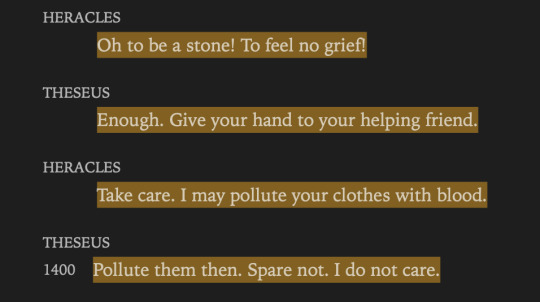
Heracles - Euripides
#idk how I feel abt Heracles being my first quote I’m sharing on here but alas it was the one I read most recently so…#ik this is a kinda popular one but it still hits me regardless so here#euripides#heracles#theseus#greek tragedy#greek plays#hercules#greek mythology#quotes#poetry
18 notes
·
View notes
Photo

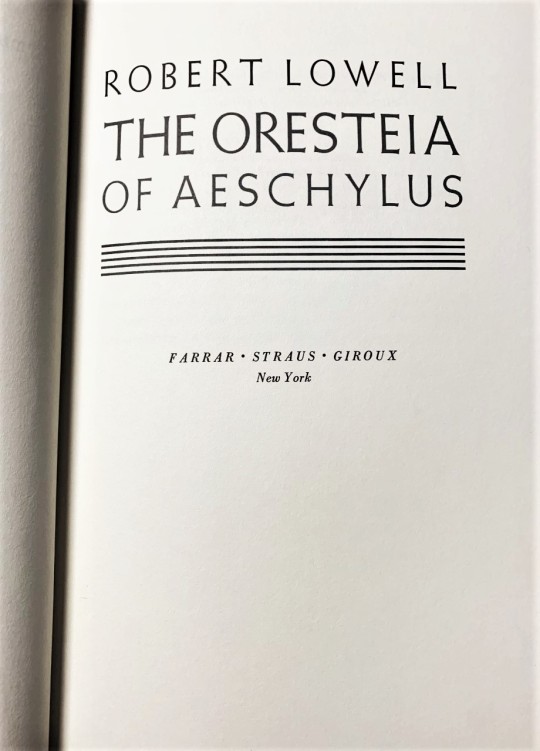

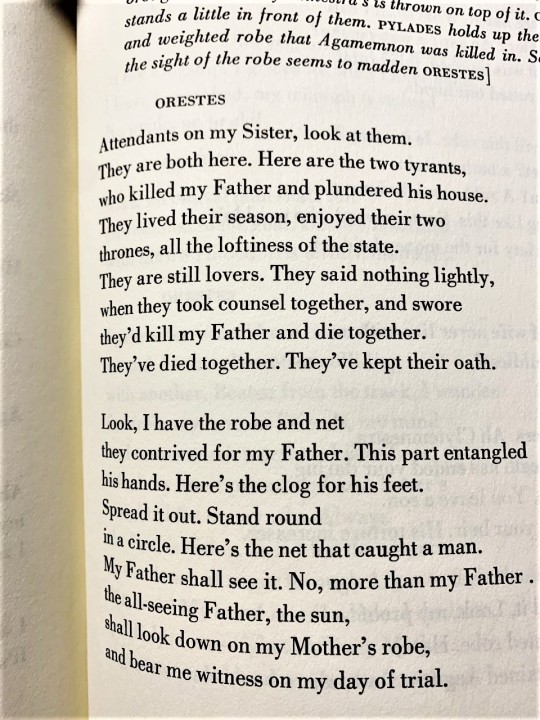
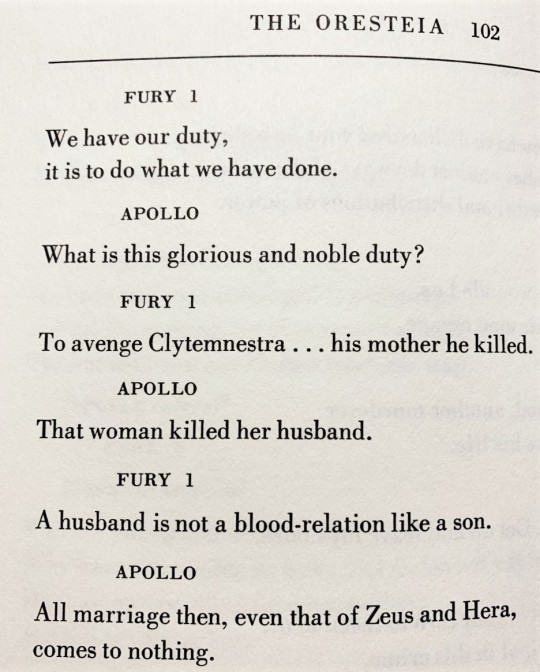
Justice, the Court System, and Drama in Athens
After ousting of the last tyrant of Athens, Hippias, in 510 BCE, and establishing Athenian Democracy, several new departments of governance needed to be created. One of the most crucial was that which presided over justice. Up to this point in Greek history, justice was the responsibility of the wronged party’s family. This commonly meant that if someone were killed, the victim's family would need to track down the murderer and kill them in return. This often resulted in a cycle of revenge with rival families, continuously thinning each other down to the point of non-existence. Given that such feuds tend to weaken a state rather than strengthen it, the Athenian government sought to take justice into the state's hands, thus leading to the establishment of the Athenian court.
This style of delivering justice had never been seen in the Greek world up to this point. The mythical origin of this system is reflected in Athenian playwright Aeschylus’s Oresteia, the only known surviving trilogy of dramas from the ancient Greek world. One of Special Collections’ several editions of these plays (our oldest is a Parisian printing in Greek published in 1552) is this one translated by the noted American poet Robert Lowell and published by Farrar, Straus, Giroux in 1978.
The story of the Oresteia is broken down into three plays, Agamemnon, The Libation Bearers, and The Eumenides. Agamemnon tells of the murder of Agamemnon, King of Mycenae, by his wife Clytemnestra after his return from the ten-year Trojan War. The Libation Bearers relates how Agamemnon’s son Orestes returns years after his father’s murder to seek revenge against Clytemnestra on Apollo’s orders, but after killing her becomes the target of the Furies' merciless wrath. The Eumenides illustrates how the sequence of events in the trilogy ends up in the development of social order or a proper judicial system in Athenian society with Athena setting up a trial in Athens for Orestes, the first courtroom trial. Orestes is acquitted, which the Furies reluctantly accept, leading Athena to rename them the Eumenides, “The Gracious Ones.” Athena then proclaims that all trials must henceforth be settled in court rather than being carried out personally.
From this series of plays, Aeschylus was able to demonstrate his belief in how integral the Athenian justice system was to maintaining the strength and stability of Athens, rather than being subject to the whims of familial vengeance cycles.
View more of my Classics posts.
– LauraJean, Special Collections Undergraduate Classics Intern
#Classics#greek history#Greek drama#Greek plays#Aeschylus#Oresteia#Agamemnon#The Libation Bearers#Eumenides#Robert Lowell#Farrar Straus Giroux#Greek courts#Greek trials#Greek justice#Ancient Greece#LauraJean
30 notes
·
View notes